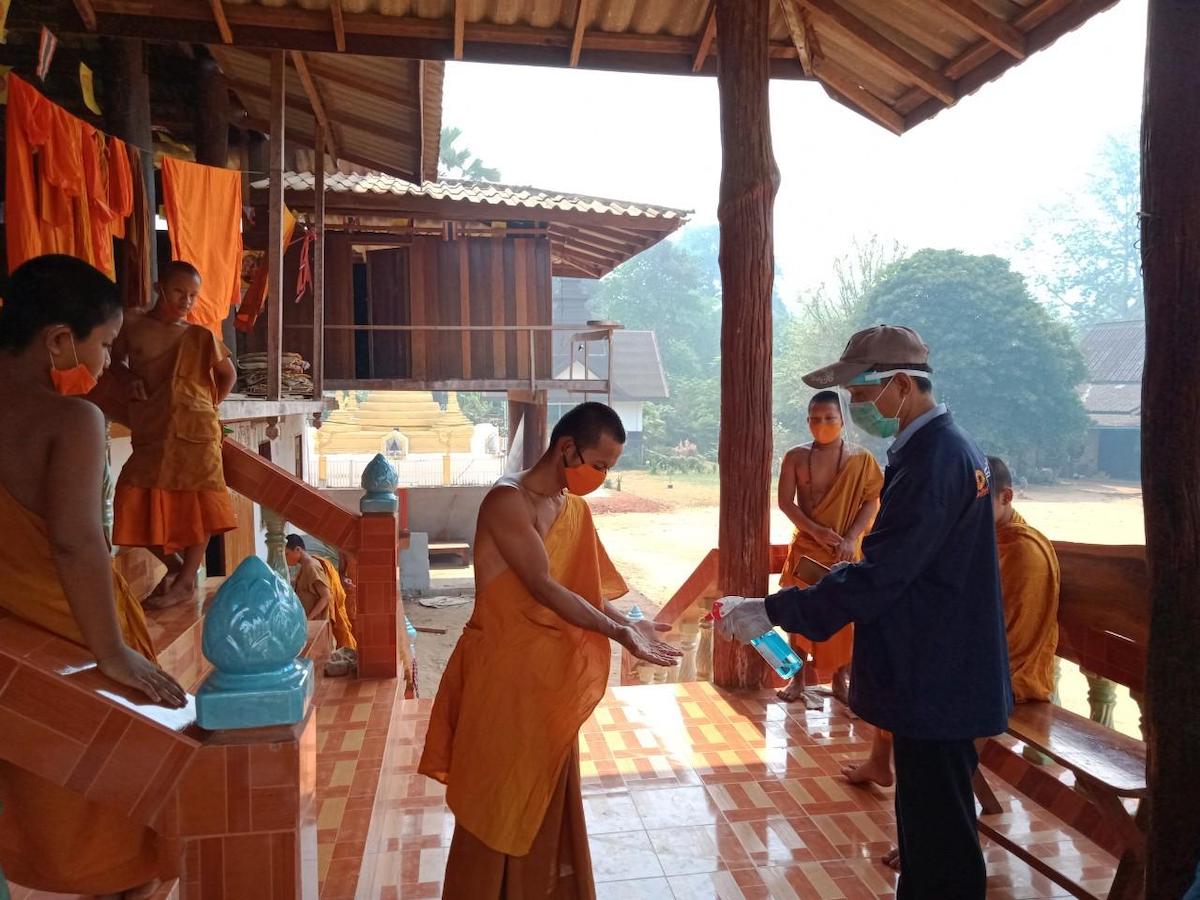Teams coming together on both sides of the Thai-Myanmar border…
Our work in Thailand and Myanmar is defined by support to people on the move between the two countries. More than two million migrants travel back and forth between them regularly, looking for work and better ways to support their families. And thousands of refugees from Myanmar are still living in camps in Thailand, mostly along the border, although many have returned home and adjust to new lives there.
Thailand is where Alight’s story began 40 years ago. Now, our work has evolved to support the new challenges people are facing in the region – and it’s still evolving as teams mobilize to confront the threat of COVID-19.
Using Existing Infrastructure to Respond to COVID-19
One of our guiding stars in our work in Southeast Asia is preventing the spread of drug-resistant malaria. The emergence of this virulent strain of the disease poses a significant public health risk, as many remote communities have limited access to health services and information.
Some of the ways we work with partners and communities to address this issue are through screenings at border checkpoints, distribution of malaria-preventing tools like mosquito nets and repellent, and distributing awareness-raising information to people, especially migrants crossing the border. And because of our long history in both countries, we have trusted, established relationships with government partners, local organizations, and the communities as we do this work. They look to us for guidance on public health, particularly when it comes to malaria.
As it turns out, establishing this infrastructure has set us up well to respond to coronavirus – the pathways are already there. Now, we’re mobilizing Alight Myanmar and Thailand teams to get information out, and to help stop the spread of the virus as it threatens to destabilize already at-risk communities.
COVID-19 Prevention in Myanmar
In Myanmar, we’re working side by side with the Karen Department of Health and Welfare (KDHW) to set up COVID-19 screening points along the border, checking people’s symptoms, taking their temperature, and monitoring potential spread between the two countries. So far, along with our partners, we’re helping to establish 49 screening points in seven districts, serving migrants as well as returning refugees from Thailand.
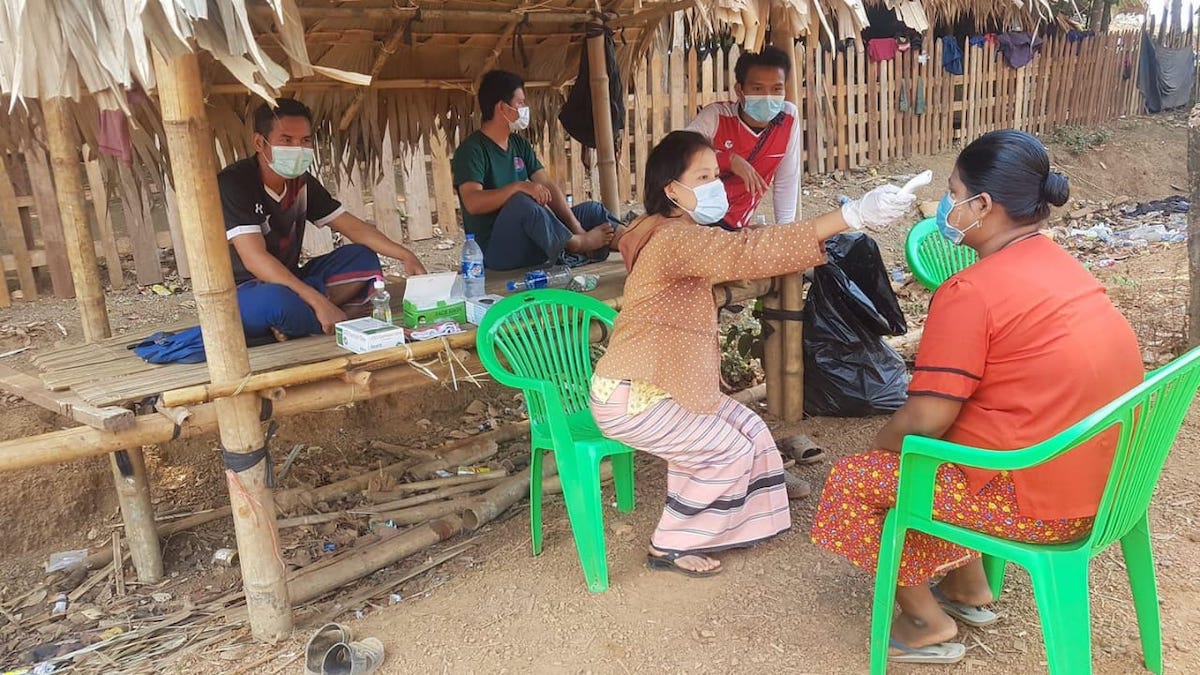
Temperature checking at screening points in Myanmar.
Information Access
Access to accurate and trusted information is a need expressed by both Alight teams and the people we serve – there is simply not enough reliable health messaging getting to the people who need it most. So while we chat with migrants about their symptoms at border checkpoints, we also share accurate health information, too. Our teams are distributing critical COVID-19 prevention messages along these stops while also sharing vinyls, posters, and pamphlets to people who can then take that information to their hometowns.
Getting People the Help They Need
Another key element in combating coronavirus in refugee settlements and other areas is referral. When someone is detected as having a fever, respiratory symptoms, chills, or any of the other key COVID-19 indicators, our teams know when to refer patients to the next level of care. We’re working closely with the government in these areas to ensure we’re following protocol and getting people to where they can receive the best services that suit their needs, and where we can help control the spread of the virus.
Volunteer Power
Using our already-established malaria prevention infrastructure means that our wonderful volunteers are helping with COVID-19, too. Our volunteers are right along with us, raising awareness in quarantine centers and communities and distributing basic essential items that will keep communities afloat during this time. In northern Rakhine State, too, volunteers are out in full force, visiting communities where internally displaced people live and holding information sessions for people looking to learn more.
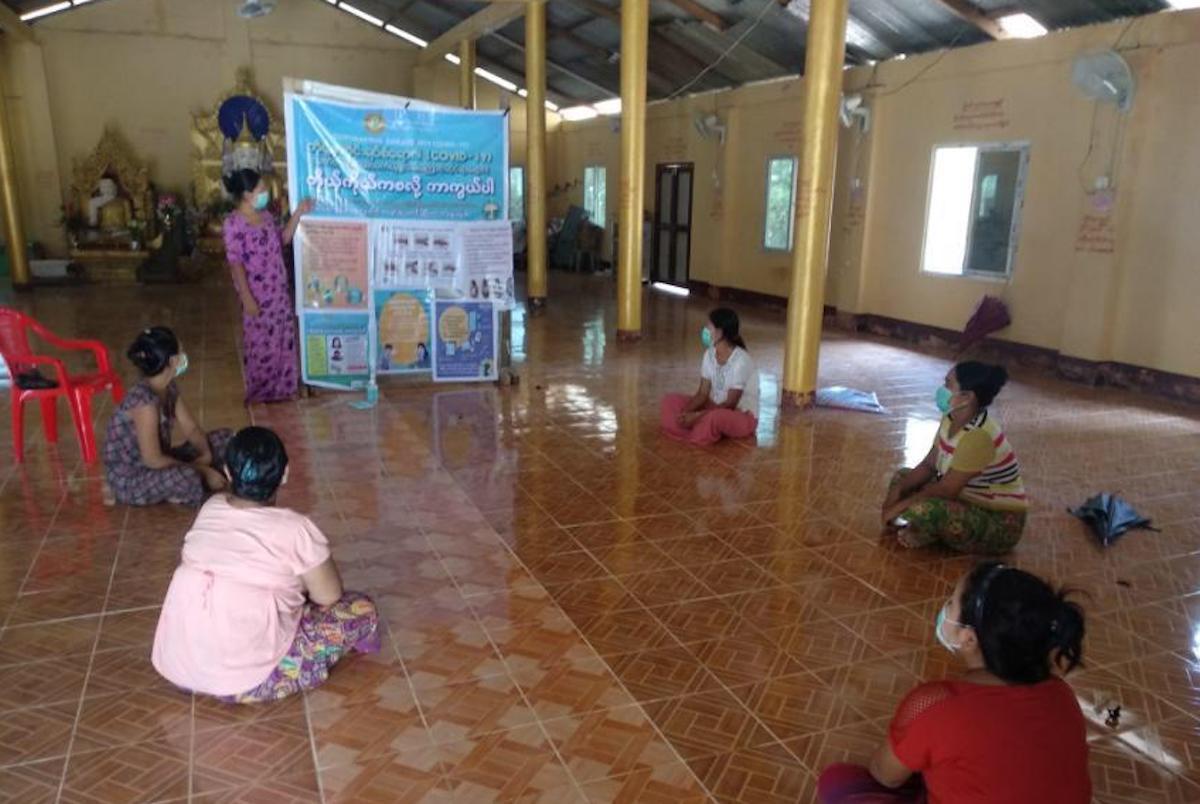
Volunteers in Rathedaung Township, Northern Rakhine State in Myanmar conducting awareness sessions and hygiene promotions in IDP sites.
Rakhine State
In difficult-to-access northern Rakhine State, getting coronavirus health messaging information to communities is critical. Teaming up with our government partners, we’re distributing accurate health information through grassroots efforts, utilizing mobile speakers, and holding hygiene and hand washing promotions. We’re also getting supplies like masks and hygiene kits to those who need it, so that communities can act on the advice we’re providing. This is especially important for internally displaced people who don’t have the resources to keep their families safe – we’re getting them the tools they need to do so.
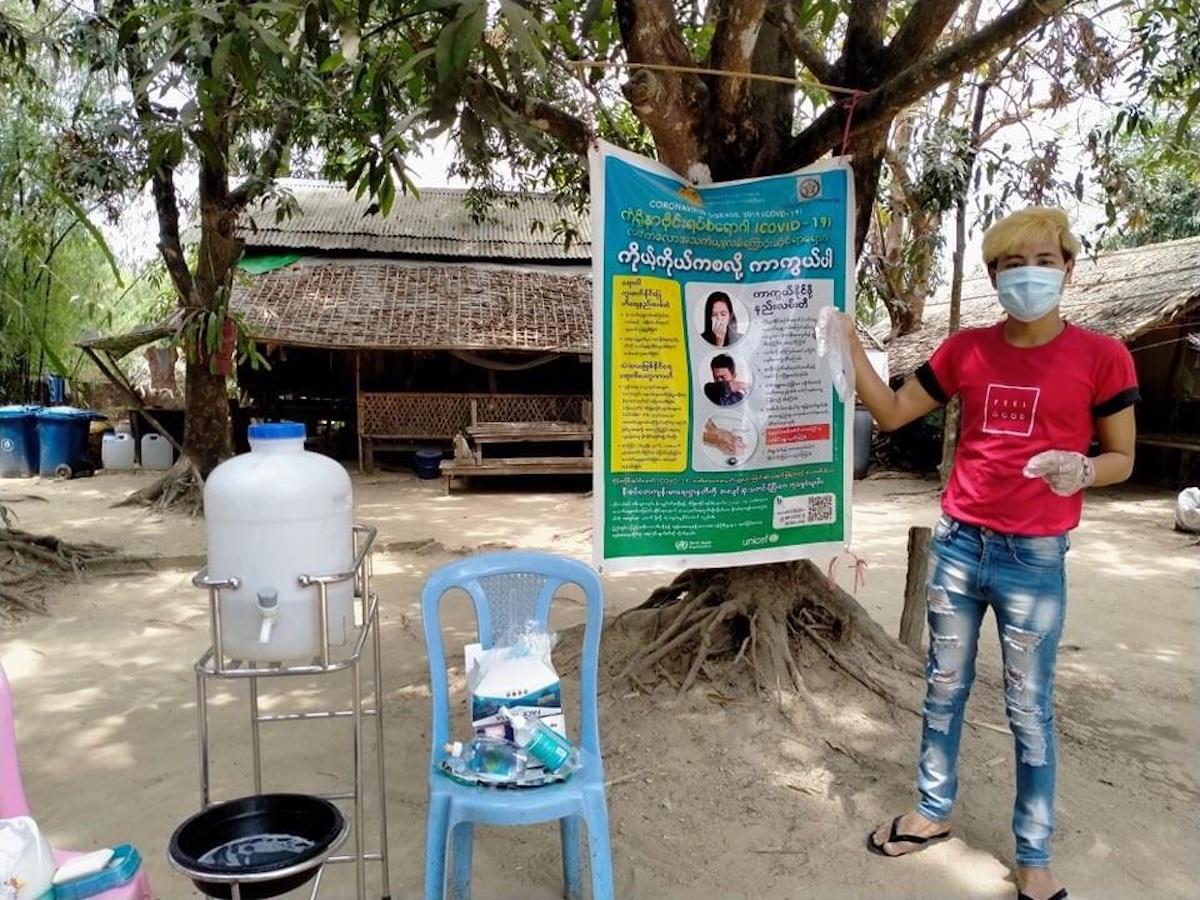
COVID-19 awareness campaign with government partners in Northern Rakhine State, Myanmar.
COVID-19 Prevention in Thailand
In Thailand, our coronavirus prevention work is all about messaging – making sure that up-to-date, accurate, relevant, and accessible messaging is getting to even difficult to reach communities. Over the past 40 years, Alight (formerly American Refugee Committee) has become a trusted provider and partner to displaced communities and local organizations. Now, it makes us uniquely positioned as a go-to organization for reliable information, getting coronavirus prevention messaging where it needs to go.
World Malaria Day
On World Malaria Day – a yearly commemoration with the people we serve – staff paired their drug-resistant malaria messaging with COVID-19 knowledge, sharing leaflets, mosquito repellent lotions, snacks, and refreshments to all who gathered in the Kanchanaburi and Ranong provinces of Thailand. Alight is already well-known in communities, and using this platform to share COVID-19 messages adds weight to the information – people know that it’s coming from a source they trust.
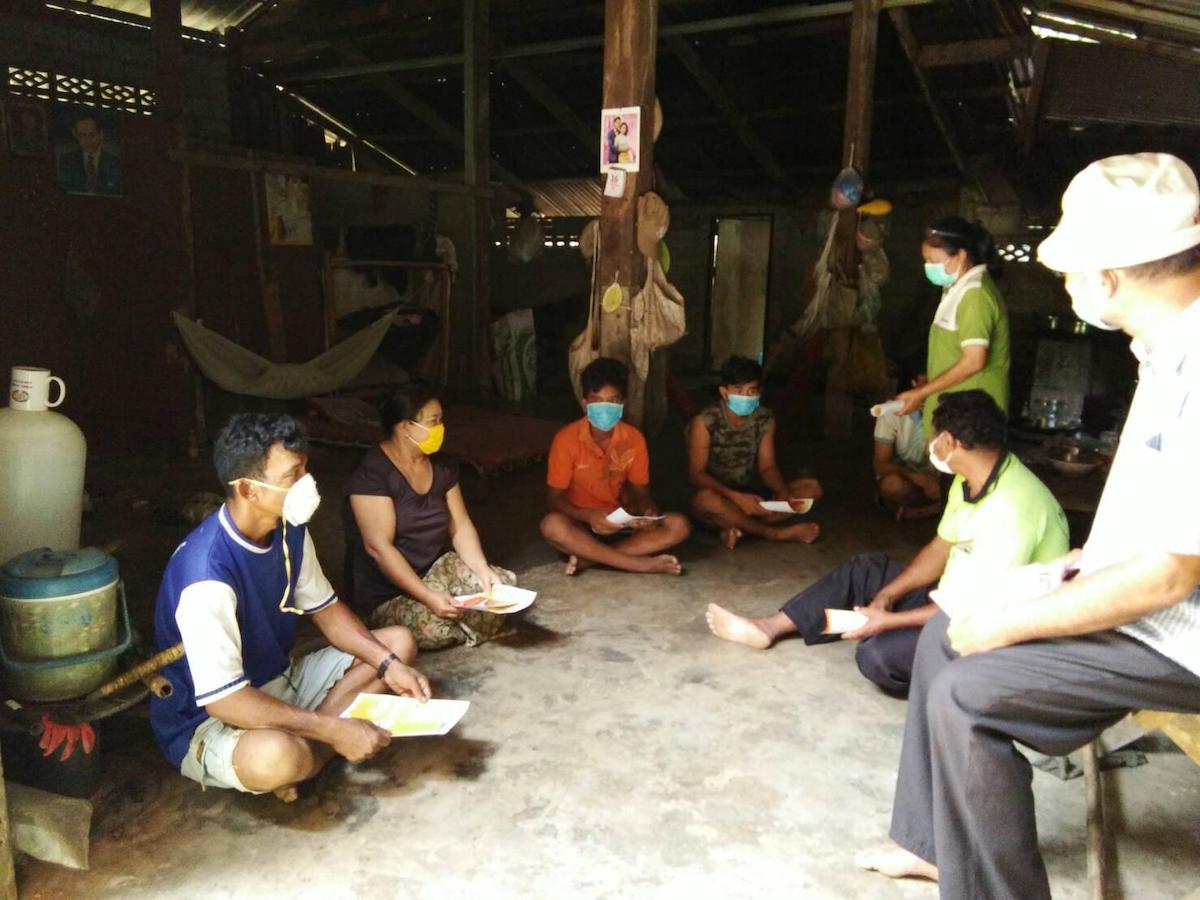
In Thailand, our Kanchanaburi and Ranong Province teams organized several outreaches and campaigns – including the World Malaria Day campaign – with Thais and migrants in remote communities.
Assessing the Coronavirus Challenge
As a leader in the region when it comes to malaria prevention, local organizations are increasingly looking to Alight to help guide the assessment of the challenges that COVID-19 presents and help prepare both partners and communities as the situation unfolds. Leading not just in Thailand but helping organize teams in Vietnam, Cambodia, and Laos as well, Alight teams led an assessment in local communities to analyze the immediate needs and how to support our partners for implementation. The results of the study will help show where anti-malaria programming can be reallocated to COVID prevention, helping organizations on the ground gain a bigger picture of the unfolding situation.
Protecting Our Teams, Protecting Communities
One of the biggest challenges Alight teams face everywhere is how to continue their essential work while protecting both themselves and the people they serve from the virus. But, particularly when it comes to COVID-19, it’s imperative that our frontline providers stay healthy and safe, without risking exposure to both vulnerable communities and their own friends and families back home. So our Thailand team is stepping up to the challenge, equipping staff with protection materials like face masks, hand sanitizers, disinfectant, and more. And we’re making sure it reaches not just people at our main office in Bangkok, but far-reaching field offices as well, getting this protective gear into the hands of teams in remote regions.
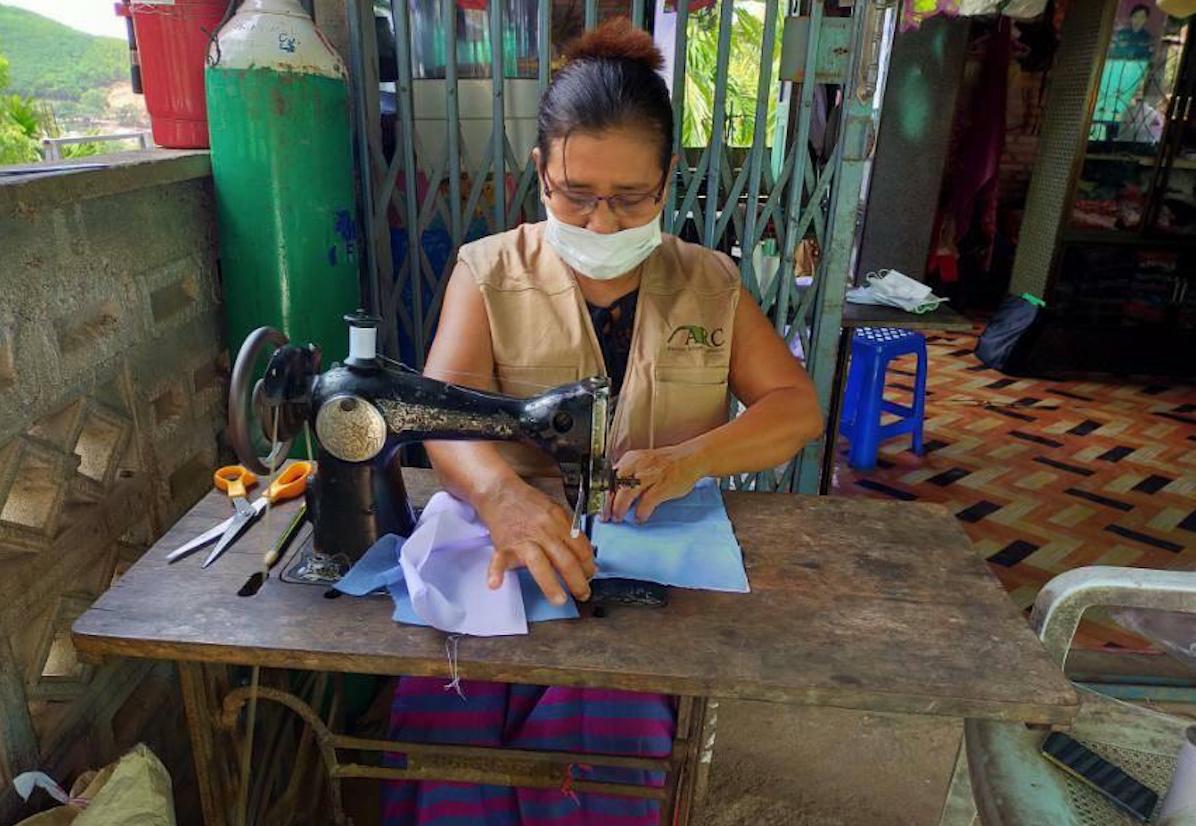
Alight community health volunteers making cloth masks to distribute to staff and partners in combating spread of Covid-19.
Moving Forward
Our cross-border work in Thailand and Myanmar defined our approach before the COVID-19 pandemic, and it will continue to do so through the crisis and beyond it. For years, Thailand has been a haven for populations on the move, from the two million migrants who travel through the country to work to the thousands of refugees from Myanmar who lived in camps along the border for decades. As the coronavirus impacts our way of work and the people we serve, we’ll continue to adapt to the changing realities, doing what we can for the people and partners we know so well.
We’re in This Together
Stopping the spread of the coronavirus in Southeast Asia and beyond is in our hands. This is the moment to join together, to keep each other safe, and to protect our most vulnerable.
Want to know how you can aid in our global coronavirus response efforts? Reach out today to learn more—there are so many ways you can help us make a difference.
